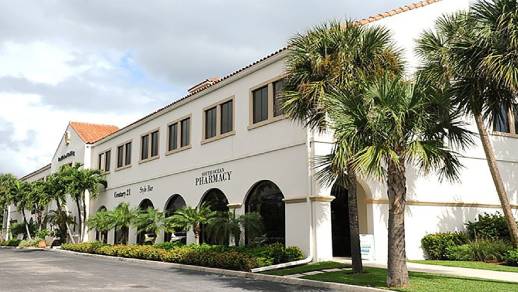Conservation easement investments, often promoted as both a means of land preservation and a way to secure tax benefits, have proven risky for many investors. Due to increased IRS scrutiny, particularly regarding syndicated conservation easements, numerous investors are facing audits, disallowed tax deductions, and substantial financial penalties.
KlaymanToskes is currently representing investors who suffered losses due to unsuitable recommendations to invest in conservation easement investments. The law firm is investigating brokers and financial advisors who may have marketed conservation easement investments as low-risk, high-reward tax-saving opportunities without fully disclosing the risks to investors.
If your financial advisor recommended unsuitable investments in conservation easements based on your investment profile, or disregarded your risk-tolerance when making investment recommendations, you may be entitled to a financial recovery through FINRA arbitration.
If you suffered losses in conservation easements, or any other investments due to unsuitable recommendations by your brokerage firm or financial advisor, contact securities attorney Steven D. Toskes to discuss your potential recovery options at (888) 997-9956 or at investigations@klaymantoskes.com for a free and confidential consultation. We do not collect attorney’s fees unless we are able to obtain a financial recovery for you.
What Are Conservation Easements?
A conservation easement is a legally binding agreement that restricts future development on land to preserve its ecological, scenic, or historical value. This allows landowners to protect natural resources while retaining certain property rights. Common conservation purposes include preserving open spaces, natural habitats, historic landmarks, and more. These easements are typically established in partnership with land trusts or conservation organizations, enabling landowners to maintain the land in its protected state while still benefiting from approved uses, like agriculture or recreation.
Benefits of conservation easements for investors and landowners may include:
- Federal Income Tax Deductions,
- State Tax Credits,
- Property Tax Reductions, and
- Estate Tax Benefits.
Syndicated Conservation Easements: Risks and IRS Oversight
Syndicated conservation easements have attracted regulatory attention due to potential misuse as tax shelters. Unlike traditional easements aimed at conservation, syndicated easements often involve investor groups who buy property shares primarily to claim tax deductions. In these arrangements, a promoter forms a partnership or other entity to acquire the land, and investors purchase interests in the entity. After placing a conservation easement on the land, an appraisal assigns a value to the easement — sometimes significantly higher than the land’s purchase price. Investors then claim tax deductions proportional to their share of this appraised value, which can far exceed their initial investment.
IRS Scrutiny of Syndicated Conservation Easements:
The IRS and Senate Finance Committee have flagged syndicated conservation easements for inflated appraisals and excessive deductions. Common issues include:
- Overvaluation: Syndicated deals may rely on inflated appraisals, yielding disproportionate tax benefits for investors.
- Excessive Deduction Claims: Investors often claim deductions multiple times their actual investment.
- Questionable Conservation Purpose: Syndicated easements sometimes prioritize tax benefits over genuine conservation objectives, raising doubts about the easement’s conservation intent.
Due to these concerns, Congress enacted the Consolidated Appropriations Act of 2023, limiting tax deductions for syndicated conservation easements to 2.5 times the initial investment.
Potential Consequences of Unsuitable Syndicated Conservation Easements
Some financial advisors and brokers have marketed syndicated conservation easements as low-risk, high-reward tax-saving opportunities without fully disclosing the risks. As a result, some investors are facing significant financial and legal repercussions, including:
- Disallowed Deductions: The IRS frequently disallows deductions in syndicated conservation easement cases, leading to unexpected tax liabilities.
- Tax Court Rulings: The U.S. Tax Court often upholds the IRS’s disallowance of deductions in these cases, which can mean substantial financial penalties for investors.
- Penalties and Fines: Investors may incur severe fines, including a 40% penalty for valuation misstatements and up to 75% for civil fraud in certain cases.
In addition to disallowed deductions, investors may be responsible for:
- Back Taxes and Interest: Disallowed deductions result in back taxes and accumulated interest.
- Additional Financial Burdens: These include penalties, legal fees, and audit-related expenses that may exceed the initial investment value.
KlaymanToskes Investigates Conservation Easement Investments:
- 15th Street Partners
- 191 Partners LP
- 830 Oconee
- Adam Smith Ventures
- Albero Investors
- Aldgate Real Estate Partners
- Anderson Pointe Investments
- Aquatic Creek Group
- Arcadian Quay Holdings
- Ardan Investors
- Ash Resources Group
- Avalon Resources Group
- Azalea Bay Resort Holdings
- Bama Soil Partners
- Barn Creek Partners
- Basin Mountain LLC
- Basin Timber Holdings
- Bates Investments
- Battelle Investment Group
- Bayou Sand Investors
- Bear Creek Investors
- Bear Creek Timberland Investments
- Beaverdam Creek Investors
- Beech Springs Resort Holdings
- Bellavista Grove Holdings
- Belle Harbour Resort Holdings
- Belvoir Investors
- Benton INV
- Berkley Road Investors
- Bickford Farm Investments
- Bienville 75 Acquisitions
- Big Anvil Partners LLC
- Big Hill Partners
- Blue Ridge Valley Investments
- Blue Springs Investors
- Bonlee Investment Properties
- Bradford Investors
- Brand Rock Investments
- Brentwood Real Estate Partners
- Briar Patch Investments
- Broadmoor Quarry Investors
- Broad River Investors
- Browndale Plantation Reserve Investments
- Brush Creek Holdings
- Brushy Hollow Investments
- Camellia Station Holdings
- Canary Creek Partners
- Cape Fear Pointe Holdings
- Carey Station Investors
- Carl Parker 52 Investors
- Carter Investors
- Cason Investments
- Cayo Marsopa Holdings
- Centerland Group
- CGP Net Lease Mezz Equity I
- Cherokee 389 Investments
- Cherry Rock Group
- Chimney Rock Group
- Clinton Investments
- Coastavista Palms Holdings
- College Creek Investors
- Cox Point Plantation Investors
- Crestlawn Investors
- Crimson S&G Group
- Cristobal Key Holdings
- Crockett Investors
- Cub Creek Reserve Investments
- CXI Properties
- Cypress Cove Marina Holdings
- Cypress Creek Rock
- Cypress Rock Group
- Daniel Creek Investments
- Deep Green Investments
- Deer Valley Group
- Delta Sand Investors
- Derrydown Investors
- Desoto Investors
- Dev X Investment 2015
- Diamond Grande Resort Holdings
- Dixie Lake Investments
- Dome Mantle Partners
- Dover Cliff Partners
- Dry Creek Partners
- Dry Mill Creek Investments
- Duck River Investments
- Dynamite Creek Partners
- Echelon Waters Group
- EcoVest Capital Inc.
- Edge Rock Partners
- Elbow Creek Group
- Emerald Acquisitions 2014
- Emerald Acquisitions 2015
- Emerald Acquisitions 2016
- Emerald Acquisitions 2017
- Emerald Property Investors
- Falling Rock Group
- Fantail Holdings Partners
- Farm River Partners
- FCT Investments
- FG River Partners
- Field View Group
- Flint River Rock & Timber Investments
- Forestar Investors, LLC
- Fork
- Fork Creek Partners
- Galley Resources Partners LLC
- Georgetown Riverfront Partners
- Giant Aggregates Partners LLC
- Ginn Creek Investments
- Glady Fork Partners
- Gray Mountain Investors
- Green Cove Group
- Green Valley Investors
- Greenview Group
- Gretsch Investments
- Gulf Land Group
- Gulf Land Investment Partners
- GWM Capital Real Estate
- Halyard Holdings Group
- Hard Rock Partners
- Harmon INV
- Harmon North Investments
- Harmon South Investors
- Harmony Road Investors
- Harris Top Investors
- Harrow Aggregates Partners LLC
- Hazel Hollow Investments
- Hillside View Partners
- Hornet’s Nest
- Horseshoe Bend Investors
- Huston Minerals Partners
- Igneous Rock Group
- Imperial Aggregates Group
- Inshore Group
- Iris Partners
- Ivery Branch Investors
- Jackson North Investments
- Jackson River Partners
- Jackson South Investments
- JC Aggregates Partners
- Jet Rock Partners
- Jones County Quarry Investors
- Jubilee Investment Holdings
- KC Aggregates Group
- Kinchafoonee Properties
- KR Stone Group
- Lakeshore Resort Holdings
- Lamstall Investors
- Laurel Creek Investors
- Lavis Properties Investors
- Leach Road East
- Lexington Property Investors
- Lion’s Gate Investments
- Little Cedar Stands Investments
- Little Horse Creek
- Little Pumpkin Creek Investors
- Little Pumpkin Creek North Investments
- Little River Partners
- Little Satilla Investors
- LM Bass Partners
- LMS Grande Pointe
- Locust Creek Investors
- Longwood Preserve Investors
- Low Angle Group
- Lowland Creek Partners
- Magnolia Bay Resort Holdings
- Magnolia River Group
- Manatee Minerals Group
- Marchette Investments
- Matterhorn Property Investors
- Mattock Holdings Group
- McGill Investors
- Mill Creek Investors
- Monterrey Cove Holdings
- Myrtle West Resort Holdings
- Nassau River Partners
- NATRSC Investments
- Norma Dean I Investors
- North Bay Cove Holdings
- North by Northwest II
- North Donald LA Investors
- Northshore Property Investments
- North Unity Henry 92 Investors
- Northwest VII Investments
- Nottely River Partners
- Oak Bayou Group
- Ocean Grove Resort Holdings
- Oconee Landing Investors
- Oconee Quarry Investors
- Old Durrand Investments
- Orange Stone Group
- Orange Woods Partners
- Otemanu Village Sand Investors LLC
- Otter Rock Investments
- Pallur Investors
- Palmetto Minerals Investors
- Palmetto Waters Group
- Paoli Investors
- Parkerson Church Reserve Investments
- Parkerson Sands Investments
- Park Lake III
- Payne Creek Investors
- Peeksville Investments
- Picayune Pearl Aggregates Investors
- Piney Island Investors
- Pleasant Ridge Investors
- Preservation Group
- QM 40
- Quail Rock Group
- Quality Minerals Partners
- Quality Stones Group
- Queen’s Cove Holdings
- Quorum Holdings Partners
- Rabbit Bar Point Investments
- Rabun Gap Partners
- Raisal Holdings
- Ranch Springs Investors
- RD Heritage Group
- RDM Land Holdings
- Regional Minerals Partners
- Reliable S&G Group
- Richland Creek Investors
- Riddle Aggregates Group
- Rising Rock Partners Investments
- River Ridge Retreat Investments
- Rivershore Sand Investors
- Riverside Preserve Holdings
- River Trace Resort Holdings
- River West SC
- Roan Creek Investments
- Roaring Florida Acquisitions
- Rock Spring Investors
- Rocky Branch Investments
- Rocky Comfort Creek Investors
- Roscoe Road Investors
- Sailfish Cove Group
- Salt Marsh Holdings
- Sand Valley Investors
- Sanibel Resort Holdings
- Seavista Resort Holdings
- Seven Hawks Investments
- Shurling Investments
- South Bay Cove Holdings
- Southeastern Argive Investments
- South Quail Woods Investors
- Spade Rock Partners
- Spring Creek 1600 Acquisitions
- Spring Hill Partners
- Sterling Land Partners
- Storey Hollow Investments
- Strategic Real Estate Opportunity Fund III
- Sunfish Cove Group
- Sycamore Fork Investments
- Tanyard Investors
- Tarpon Creek Investments
- Tater Creek Investments
- Tennessee Branch Partners
- Tennessee Ranch Estates Investors
- TH 28 Partners
- Tick Creek Holdings
- Timothy Investors
- Tom’s Mountain Creek Investments
- Toscano Investments
- Two Chip Investors
- Union Creek Investments
- Upland Creek Partners
- Vibrant Minerals Investments
- Vineyard Ridge Investors
- Vista Hill Investments
- Wahoo River Investments
- Waterway Grove Holdings
- West Lake Investments
- White Oak Investments
- White Path Investors
- White Sands Village Holdings
- Yacht Creek Investments
- Yankee Landing Holdings
- Yellowhammer S&G Group
- Yellow River Investors
- Yield Rock Group
- Zebra Creek Rock LLC
- Zenith Aggregates Partners
- Zorn Island Investments
Potential Recovery Options for Conservation Easement Losses
Investors who sustained losses due to unsuitable or fraudulent conservation easements have options for potential recovery, including FINRA Arbitration. FINRA (the Financial Industry Regulatory Authority) is a self-regulatory organization that oversees brokers and brokerages. In the event of a dispute between an investor and their financial advisor, investors can choose to file a FINRA arbitration claim. FINRA is overseen by the Securities and Exchange Commission (“SEC”).
The arbitration process is designed to be much faster than the court system and allows both parties to present their case before a panel of arbitrators. The arbitrators will then decide how to resolve the dispute, including ordering the advisor to pay damages for any losses suffered by the investor.
KlaymanToskes stands as a preeminent national securities law firm, dedicated to representing retail and institutional investors worldwide in securities arbitration and litigation, focusing on recovering investment losses caused by the malpractice or malfeasance of trusted financial advisors and financial institutions.If you suffered investment losses due to being recommended to invest in a conservation easement investment by your brokerage firm/financial advisor, contact KlaymanToskes at (888) 997-9956 or visit our website to fill out a short contact form for a free and confidential consultation.









